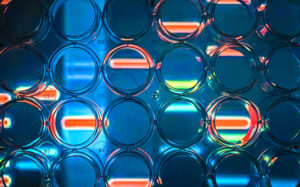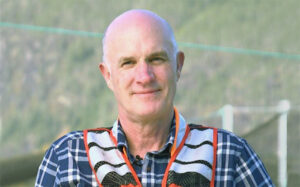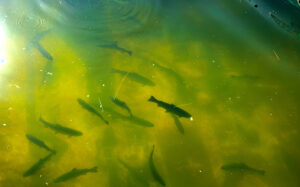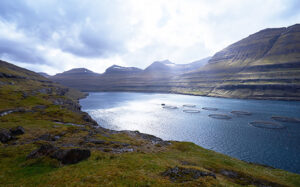The value of veterinarians in ensuring sustainability for Africa’s fast-growing aquaculture industry
Sub-Saharan Africa is enjoying an aquaculture boom — with fish health and welfare services moving in turn to meet the sector’s needs and ensure sustainable growth. In an interview, veterinarian Brandon Spolander, BVSc, MRCVS, SAVC, MSc, owner of Aquavet Africa, talks about engaging with the growing industry and addressing important gaps.
News & Trends
Advanced genomics data could spark breeding revolution in European aquaculture
New genomics data on six commercially important fish species in Europe could have major implications for breeding programs, but there is work still to be done to realize the benefits.
Dramatic changes and emerging challenges in more than 30 years of fish health and welfare
An interview with Professor Jimmy Turnbull, PhD, University of Stirling
How acoustic technologies are aiding fish health and welfare
Monitoring fish using sound is on the rise in aquaculture, meeting a need to accurately assess the health and welfare of farmed-fish populations in changing environments.
Norwegian salmon industry’s annual ‘health check’ underlines areas for improvement
The Norwegian Veterinary Institute’s latest Fish Health Report1 has highlighted record numbers of sea lice treatments and bacterial diseases causing complications for fish producers in Norway — but in order for its authors to keep up with changes in the industry, new, more specific data needs to be collected and made available in coming years.
Understanding how diseases arise and spread can guide global aquaculture’s responses
An interview with Edmund Peeler, PhD, principal epidemiologist at the Centre for Environment, Fisheries and Aquaculture Science (Cefas).
Data and feed helping tackle some of Europe’s prevalent fish-health threats
A Europe-wide project is helping establish new approaches to tackle economically important parasites and pathogens, both in the Mediterranean and Norway.
Reanalysis shows true identity of bacteria involved in lactococcosis cases
The bacterium Lactococcus petauri has played a more significant role in historical cases of the disease lactococcosis than was previously thought, new research suggests.
Understanding plankton threats to salmon requires a mix of old and new technologies
Using both “traditional” microscopy and environmental DNA (eDNA) analysis can help paint a complete picture of plankton threats to salmon aquaculture, according to University of Glasgow research.









